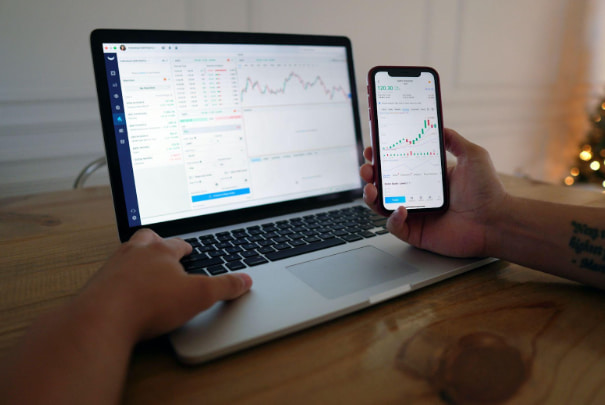The foreign exchange (forex) market is the world’s largest financial market, with over $5 trillion traded daily. This makes forex an attractive option for traders looking to capitalize on currency fluctuations.
However, to participate in forex trading, you need access to the market through a broker. With new brokers constantly emerging, finding the right one can feel overwhelming for novice traders.
Not all brokers are created equal. Choosing the wrong one could leave you vulnerable to unfavorable trade conditions, hidden fees, trading restrictions, and even outright fraud.
On the other hand, a reliable, well-regulated broker provides the tools and trading environment needed to successfully buy and sell currencies.

A good forex broker ensures they meet their client’s needs by offering a platform with reliable trading features. This guide will explore the key factors to evaluate when comparing forex brokers.
We will look at elements such as regulation, trading platforms, account types, spreads and commissions, customer support and more.
By understanding these criteria, you can find the ideal broker for your specific forex trading needs and avoid falling victim to dishonest operations. Whether you’re a beginner seeking an easy-to-use platform or an experienced trader looking for advanced features, the right broker makes a big difference.
Assess the Broker’s Regulation and Reputation

The first and most critical step is verifying that any potential broker is appropriately licensed and regulated within your jurisdiction. Regulation ensures oversight from financial authorities charged with enforcing trading standards and protecting consumers. Be wary of any broker promoting themselves as “offshore” or unregulated, as this likely indicates duplicitous practices.
Within the United Kingdom, reputable brokers are authorized and monitored by the Financial Conduct Authority (FCA). Being FCA approved requires upholding strict operational, reporting and capital requirements. Check the FCA Register to confirm a broker’s regulatory status before opening an account.
Additionally, favor brokers who are active, long-standing members of industry groups like the National Futures Association (NFA) in the United States or the Investment Industry Regulatory Organization of Canada (IIROC). These memberships denote a higher level of integrity.
Never rely solely on a broker’s marketing claims about regulation. Verify proper registration directly through the official regulator’s website or third-party sources like BrokerNotes.com. Avoid any broker unwilling to provide proof of licensing.
Compare the Trading Platforms

The trading platform is the software used to place forex trades and view the market. Make sure prospective brokers offer a platform aligning with your experience level and preferences. Consider aspects such as:
- Ease of use – Is the platform intuitive or overly complex? New traders may prefer simple dashboards versus platforms aimed at advanced technical analysis.
- Accessibility – Can you access the trading platform via desktop, web browser, and mobile apps? Check for flexibility to switch between access points.
- Features – Useful features include real-time market news/analysis, economic calendars, risk management tools, customizable charts and indicators, algorithmic trading and more. Ensure needed features are available.
- Demo accounts – Reputable brokers offer practice demo accounts mirroring the real platform. Use demos to test ease of use and capabilities risk-free.
- Reliability – Trading platforms should provide adequate uptime and quick trade execution without lags or freeze-ups, even during volatile markets.
Selecting a broker with an unsuitable platform interface may hamper your trading. Try out demo accounts first and read platform reviews to gauge dependability.
Review Account Options
Brokers provide several account types catering to different trading styles and capital levels. Consider the available account offerings when selecting a suitable broker.
- Standard accounts – Regular accounts allow trading standard lot sizes with relatively low minimum deposit requirements. This works for casual traders.
- Micro/mini accounts – These accounts permit trading micro lots and mini lots with lower minimums. Ideal for beginners.
- ECN/STP accounts – ECN brokers route orders directly into liquidity pools without dealing desk intervention. STP brokers send trades straight to liquidity providers. Both offer direct market access for active traders.
- Islamic accounts – Accounts conforming to Islamic religious restrictions against interest/swap fees.
- Demo accounts – Practice accounts allowing simulated trading to test strategies risk-free. Look for generous demo account balances and timeframes.
- Managed accounts – Let an experienced manager trade your account for you for a percentage of profits. Suitable for passive investors.
Ensure the broker’s account lineup matches your capital availability, trade activity, and preferences like Islamic trading.
Scrutinize Spreads, Commissions and Fees
Brokers generate revenue through spreads, commissions or a combination. Spreads represent the difference between the bid and ask prices. Commissions are per trade flat fees. Lower costs allow you to retain more profit on trades.
- Spreads – Compare typical spread sizes across currency pairs during volatile and stable market conditions. Variable spreads fluctuate, while fixed spreads remain static.
- Commissions – Commission structures range from $0 flat fees to $10+ per lot round turns. Look for commission-free trading or low, transparent commissions.
- Admin fees – Check for hidden admin fees on deposits/withdrawals, account inactivity or maintenance that erode profits.
- Swap rates – Swap/rollover rates on overnight positions that open beyond 5 pm New York cutover time impact bottom line.
Always read the fine print about all broker fees. Favor brokers promoting transparency with competitive, clearly disclosed pricing.
Evaluate the Broker’s Execution Quality
Trade execution quality directly impacts your trading performance. Factors determining execution quality include:
- Slippage – Slippage is the difference between your entry/exit price and the expected price. Excessive slippage from poor execution eats into profits.
- Re-quoting – Re-quotes occur when your trade order price updates unfavorably before execution. This also leads to slippage.
- Order types – Does the broker offer market, limit and stop-loss orders? Using appropriate order types prevents slippage.
- Spreads – Variable spreads open to manipulation create execution uncertainty. Fixed spreads promote transparency.
- Latency – Fast trade execution speed is critical for time-sensitive trades. Compare execution latency.
Favor brokers providing transparency into execution practices and taking steps to minimize negative slippage events. Check forums for feedback on execution quality.
Assess the Broker’s Market Access and Liquidity
Liquidity refers to the availability of buy/sell orders at any given price point. Superior liquidity makes entering/exiting trades faster and simpler. Evaluating a broker’s liquidity sources provides insight into potential execution quality.
- Dedicated liquidity – Brokers providing their own market liquidity offer stable pricing but risks conflict of interest.
- Third-party liquidity – Integrating with third-party banks/providers allows sharing the best available pricing across multiple liquidity pools.
- ECNs – Trading via ECN networks supplies multiple liquidity sources for better pricing and execution speed.
- Number of currency pairs – More currency pairs indicates wider direct market access and sufficient liquidity sources.
Favor brokers with established third-party liquidity partnerships offering deep liquidity across major, minor and exotic currency pairs. This facilitates efficient order execution.
Check for a Strong Customer Support Service
Even veteran traders sometimes need help with the trading platform, account management or general queries. Check broker reviews to assess the responsiveness and competence of available customer support. Consider:
- Communication methods – Live chat, phone, email and localized branch offices should provide multiple contact options.
- Support hours – Around-the-clock support is ideal for international traders. At minimum, support should cover all trading hours.
- Knowledge – Customer service staff should demonstrate extensive knowledge addressing most common issues.
- Response time – Support should respond promptly whether contacting during peak or off-peak hours.
- Native language – For international traders, local language support provides better communication.
- Accessibility – Check ease of actually reaching a live support rep versus endless call waiting times or relying solely on email/forums.
The best forex brokers invest heavily in customer support and provide responsive multilingual assistance via various convenient methods.
Compare Bonuses and Promotions
Many brokers offer bonuses, promotions and other rewards to attract new customers. While enticing, weigh such incentives smartly before opting into a broker purely for the benefits.
- Welcome bonuses – Matching extra deposits up to a certain amount helps traders maximize initial account balances. But check bonus fine print for high trading volume requirements before withdrawing funds or profits.
- Referral bonuses – Earning bonuses for referring other traders sounds nice, but this appeals primarily to high volume/skill traders with many connections.
- Contests/challenges – Fun contests awarding real or demo account prizes often have tough rules like high volume requirements that are unrealistic for most.
- Loyalty programs – Things like cash rebates or discounted spreads reward customer loyalty. Make sure programs offer real everyday value.
- Educational resources – Useful webinars, ebooks and trading courses actually provide long-term value versus short-term bonuses with strings attached.
Evaluate bonuses pragmatically for real benefits versus empty incentives. Favor brokers offering helpful resources.
Check Broker Reputation Through Reviews
One of the best ways to evaluate broker suitability is checking feedback from actual customers. Visit third-party review sites and forums to gain unbiased insight into a broker’s real reputation. Watch for:
- General feedback – Pay attention to overall satisfaction levels and repeat customer rates as a quality indicator.
- Complaints – Check for frequent issues like trading platform malfunctions, unexpected fees, account funding/withdrawal problems and poor support.
- Resolution satisfaction – If brokers receive complaints, observe how professionally and promptly they resolve matters.
- Regulatory actions – Research regulators for any sanctions or penalties against a broker signaling unethical practices.
- Negative press – Search news sources for alarming stories involving fraud accusations or investigations against a broker.
While an occasional complaint is normal, consistently negative feedback indicates poor brokerage service. Favor well-established brokers maintaining positive reputations.
Perform a Background Check
Before entrusting your capital, take time to verify a brokerage and its key leaders seem legitimate. Quick background checks give peace of mind.
- Company history – Favor longtime brokers with 10+ years in business who have stood test of time and varying market conditions.
- Ownership – Determine the actual company and individuals owning and operating the broker. Research their backgrounds.
- Contact details – Reputable brokers list verifiable office addresses/phone numbers versus undisclosed offshore locations.
- Website – Professionally made websites with the broker’s ownership details denote trustworthiness.
- Licensing – Again, verify proper broker registration/licensing through official channels like the NFA or FCA.
- News search – Search the broker’s name plus “scam” or “fraud” to uncover any allegations masking bigger issues to avoid.
Avoid brokers with no obvious owners, no contact information, no history and regulatory red flags. Vet brokers diligently like any business.
Check Broker Financial Health
Unlike dealing with regulated banks, your broker essentially has custody of your trading capital. So you want to ensure your broker maintains sufficient financial resources to sustain operations and protect client funds.
- Capital requirements – Regulated brokers must hold adequate operating capital reserves as a financial buffer. This lowers bankruptcy risk.
- Balance sheet – Review latest balance sheet reports for positive indicators like low debt ratios, growing revenues and adequate liquidity.
- Credit rating – Higher credit ratings from agencies like Standard & Poor’s signify financial stability and lower default risk.
- Years in business – Long operating history spanning decades proves a broker has financial means to weather inevitable market volatility.
- Regulatory oversight – Strict regulations impose financial accountability. FCA brokers must comply with financial adequacy rules and submit financial reports.
- Segregated accounts – Top-tier brokers hold client funds in segregated accounts separate from operational funds for extra security.
Avoid thinly capitalized brokers displaying shaky financials. Partnering with well-funded brokers reduces trading disruptions.
Beware of Broker Scams
While most forex brokers are legitimate businesses, an untrustworthy minority engage in manipulative tactics and outright fraud. Look for these telltale warning signs of scams:
- Guaranteed returns. All investments carry risk – “guarantees” demonstrate a scam.
- High-pressure sales tactics. Reputable brokers never rush account signup.
- Unsubstantiated claims of high win rates for clients or proprietary technology enabling endless profits. More hallmarks of scams.
- Obscure company details like no address or unknown ownership. Opaque operations indicate illegal practices.
- Aggressive bonuses requiring quick deposit for withdrawal. A ploy to lock in customer funds.
- Obfuscating fees buried in fine print contracts. Dishonest fee layers erode profits secretly.
- Excessively smooth website sales copy promising riches with little sensible detail on real trading. More scam smoke and mirrors.
Stay vigilant for warning signs like those above when screening brokers. Prioritize transparency and avoid falling for too-good-to-be-true sales pitches.
The Bottom Line
Choosing the right forex broker takes research. Scrutinize factors like regulation, trading platforms, liquidity access, fees, support and reputation when comparing brokerages to find the best fit for your needs. Favor well-capitalized brokers with lengthy track records and positive customer feedback.
With a properly regulated broker, you can trade currencies through a trusted platform knowing your capital is secure. Avoid falling into an offshore scam. Applying the tips in this guide steers you towards reputable brokers and away from dishonest operations aiming to defraud traders.
Take your time evaluating brokers. Opening an account you later regret can cause headaches, so conduct thorough due diligence first. Partnering with an ideal brokermatched to your specific requirements provides the foundation for trading success.
FAQs
What is the minimum I should deposit with a forex broker to start live trading?
Most brokers allow starting live trading accounts with a minimum of $200-500. Consider beginning with micro/mini accounts needing just $50-100 to minimize risk while practicing real trading using small position sizes.
Is it safer to choose a domestic or offshore forex broker?
Onshore domestic brokers regulated locally tend to provide better security and transparency. Offshore brokers may seem appealing but face less oversight and often take part in dubious activities like “bucket shops” made illegal in the US and UK. Avoid offshore brokers.
How quickly can I withdraw funds from a forex trading account?
Most brokers process withdrawals within 24-48 hours on business days. Ensure your broker provides multiple secure withdrawal options like bank wires, e-wallets or debit cards and has no obstructive withdrawal policies or fees.
What is an ECN broker and how is it different?
ECN brokers provide direct access to real forex market liquidity versus dealing desk market makers. ECN networks allow interacting with live Buy/Sell orders from global banks/institutions for accurate pricing and fast execution through deeper liquidity.
Is it wise to choose a forex broker based on the size of their bonus offers?
No – large bonus promotions usually have unrealistic trading volume conditions before withdrawability. Rather than chase bonuses, focus on a broker’s market access, fee structure, platforms and customer service. A trustworthy broker is more valuable than gimmicky promotions.
What qualifications and experience make a good forex broker account manager?
Look for account managers holding relevant financial credentials like MBA Finance degrees and the Chartered Financial Analyst (CFA) certification. Further, they should possess at least 5-10 years actually trading currencies successfully themselves, not just academic knowledge.
Can I trade forex without a broker through my bank or other financial institution?
Generally not – banks deal only in select major pairs, not the wider FX market. Forex brokers provide direct access to the full interbank currency market and facilities tailored for active trading like advanced platforms, margin trading, and shorting capabilities versus banks.
Is forex trading legal in all countries?
Forex trading is legal globally, except a few countries like North Korea. However, each country has their own regulatory structure. Ensure any potential broker properly holds valid local licenses and adheres to territory-specific rules governing financial services firms.
What happens if my forex broker goes bankrupt – will I lose my trading account balance?
At top-tier brokers, your funds are held in segregated client accounts and protected from the broker’s financial performance. Reputable regulators also enforce protections and compensation schemes as a last resort. Check your broker’s practices and regulation for assurance around account balances in worst case scenarios.
Disclosure: The articles, guides and reviews on BlowSEO covering topics like SEO, digital marketing, technology, business, finance, streaming sites, travel and more are created by experienced professionals, marketers, developers and finance experts. Our goal is to provide helpful, in-depth, and well-researched content to our readers. You can learn more about our writers and the process we follow to create quality content by visiting our About Us and Content Creation Methodology pages.

